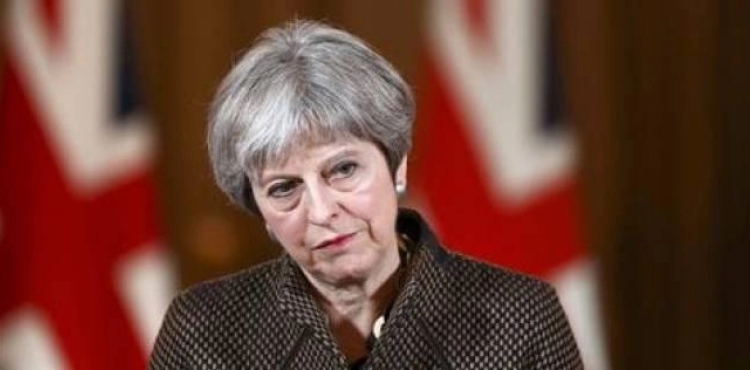British Prime Minister Tony Blair will send a letter to European Union President Donald Tusk in a plan to postpone the BRICCAST beyond the March 29 date, a spokesman said Tuesday, adding that the parliamentary stalemate had reached a crisis level.
The spokesman added that Mai would send the message before heading to the Brussels summit on Thursday, after promising to seek a long postponement of the date of Britain´s exit from the European Union.
Mai hoped to be able to pass the plan reached with the European Union in parliament before the date of withdrawal, despite the rejection of the deputies two.
But in a dramatic decision that angered the government and warned of a constitutional crisis, House of Commons Speaker John Berko said Monday that the deal could not be voted on in its current form for a third time.
For their part, the leaders of the European Union asked London to inform them clearly what they want, warning that the risk of leaving Britain without an agreement after ten days is still present.
European chief negotiator Michel Barnier warned Tuesday that any extension of the BRICCET talks would have "a political and economic price" for the rest of the bloc´s 27 member states.
He told reporters that if Mai´s wishes were "extended, this request must be linked to something new, a new event, or a new political process."
"How can we ensure that after the possible extension we will not return to the same situation we are today?" He asked.
Mai´s spokesman said her message would arrive in Tusk later on Tuesday or Wednesday, amid reports it might seek to defer the bricast for 12 months.
"The prime minister will write to Donald Tusk, president of the European Council, before the Council begins to consider extending article 50 of the Lisbon Treaty.
Mai finds it difficult to control the BRICEST process after parliament decisively rejected the exit agreement for the second time.
After weeks of political stalemate in the parliament, May was forced to acknowledge that BRICST should be delayed amid fears of economic shock if Britain ended its 46-year membership in the European Union without a deal.
But if parliamentarians support its agreement this week, it may be a short delay to ratify the text, she said.
Mae warned that not reaching an agreement would lead to a long delay for BRICCAST, and that this could mean that Britain should participate in the European Parliament elections.
Berkst´s pro-British newspapers condemned Berko as "devastating Breakst".
But Mai was not at all sure that her deal would be approved by parliament this week as many Conservative MPs opposed the agreement, believing it would keep Britain too close to the EU.
Talks aimed at persuading her party deputies and their allies from the Unionist Democratic Party to support the deal continue.
Speculation that May has reached any agreement with the European Union on the BRICT delay may be enough to persuade Berko to vote again on the deal.
In Berlin, Chancellor Angela Merkel said: "I will fight until the last hour of the March 29 deadline for an orderly departure from the union, we do not have much time, but we still have a few days."
However, one of the aides to French President Emmanuel Macaron warned that the approval of the extension request "is not certain or automatically."
Berko´s decision added more complexity to the essentially difficult Brickst process, which exposed deep divisions in the British parliament.
Deputies are still not in agreement on how to implement the outcome of the 2016 referendum to get out of the European Union, and voters are still divided about three years after their vote in the referendum by 52% compared to 48%.
May continues to assert that its agreement covering the rights of European citizens, a British-paid bill, Irish border plans and the transitional period after BRICEST are a good settlement.
Several MPs pointed out that Berko´s decision meant that she should return to the negotiating table at this late stage.
Berko´s decision was based on a "very strong and old precedent dating back to 2 April 1604".












